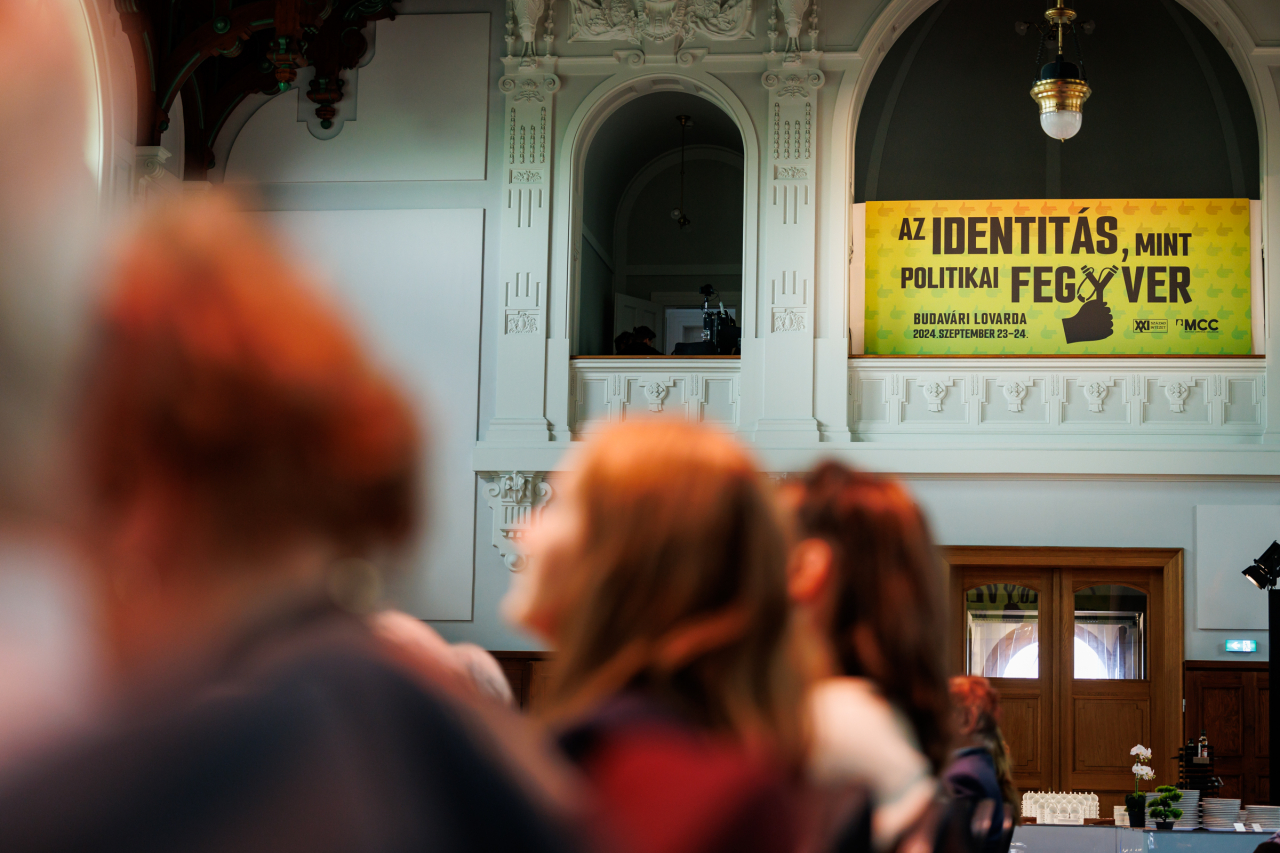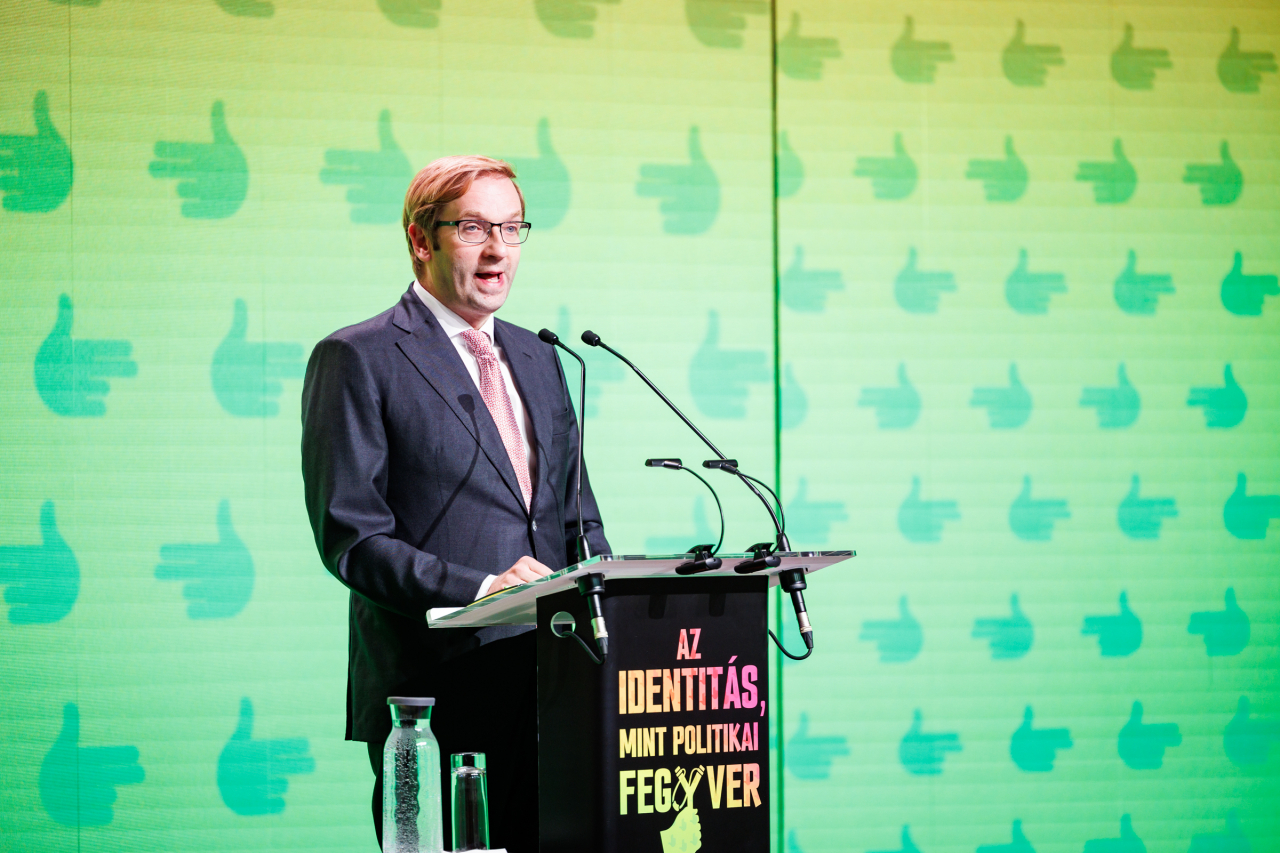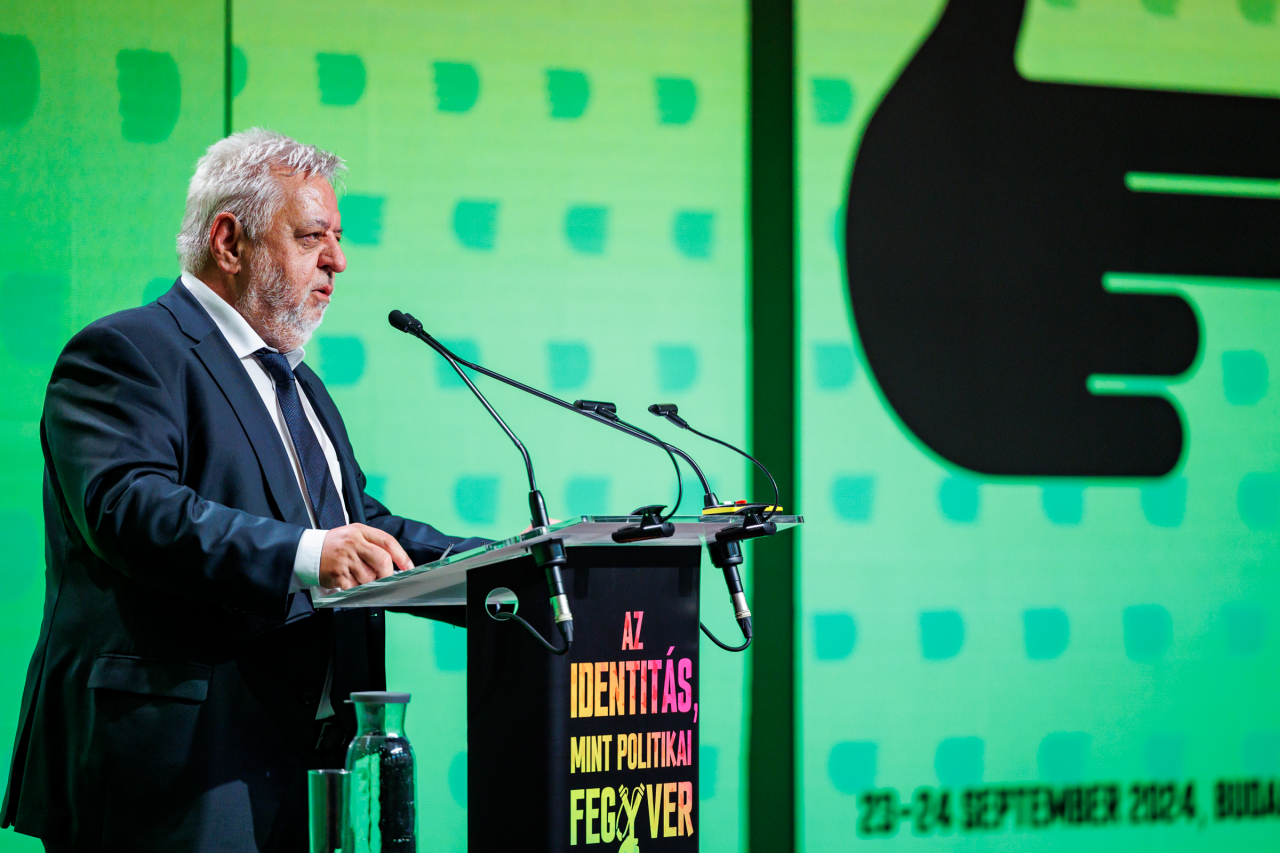Reading time: 3 minutes
This past Monday and Tuesday, we had the honor of co-hosting a thought-provoking conference titled "Identity as a Political Weapon", in collaboration with the XXI Institute. The event brought together a diverse array of prominent political leaders, academics, and thinkers to engage in critical discussions on identity, gender, and sex— topics that are increasingly shaping political landscapes around the globe.
Alongside a number of engaging presentations, the conference featured the following key highlights and notable speeches:
Zoltán Szalai, Director General of Mathias Corvinus Collegium, opened his speech by emphasizing the need for a meritocratic system over identity politics. He discussed how national identity is shaped by tradition and storytelling, with MCC striving to provide patriotic education to its students. Szalai highlighted that identity is evolving from a traditional foundation based on family and community. According to him, without strong national narratives, identity politics risks dividing societies, which is why nurturing and preserving national identity is crucial.
Balázs Hankó, Minister of Culture and Innovation, in his address stressed the importance of patriotism, national identity, and family values in the context of modern identity politics. He argued that fostering a strong sense of national identity is essential to maintaining societal cohesion in an increasingly polarized world.
Mária Schmidt, Director General of the 21st Century Institute and the House of Terror Museum, addressed the cultural shifts surrounding sexuality and identity, particularly in relation to the decline of family structures. She highlighted that sexuality is becoming disconnected from love, forcing women to behave like men in a commitment-free environment, which, according to her, leads to unhappiness and dissatisfaction. Schmidt noted that this trend is particularly visible in the West, where many women live sexless lives, become depressed, and develop negative attitudes toward men, while men increasingly turn to pornography.
Bence Rétvári, Deputy Minister at the Ministry of the Interior, emphasized the close connection between national and religious identity, explaining how these shared identities foster trust and community. Rétvári drew parallels between national identity and family life, noting that men and women play complementary roles in raising children. He highlighted that there are things only a mother can provide, just as there are things only a father can offer, stressing the importance of both parents in a child's development.
András Lánczi, Head of MCC’s European Center of Political Philosophy, gave a compelling talk on the philosophical and political aspects of human sexuality in his speech titled "Sexual Desire: Divine, Diabolical, or Political?" Lánczi explored how human desires are influenced by social and political factors, contributing to broader debates on identity and culture.
Jan Bentz, MCC's Visiting Fellow and Professor of Philosophy, discussed the spiritual crisis in the West, focusing on how modernity is rejecting inherited identities in an effort to create a secular utopia. Bentz explored how this rejection is contributing to a sense of dislocation and instability in society, further fueling identity conflicts.
The conference also featured several engaging panel discussions. Gábor Csepregi, Advisor to MCC’s Leadership Academy, participated in a panel that examined the impact of the sexual revolution on societal norms and the redefinition of identity. Csepregi emphasized that the idea of changing genders leads to a rewriting of identity, suggesting a societal transformation as radical as Soviet measures. He noted, "The complete lack of irony and humor in gender ideology is alarming," pointing out that many former hippies, who once rebelled against societal norms, later abandoned their beliefs and settled into mainstream lifestyles.
Levente Székely contributed to a panel that focused on the Christian tradition of distinct roles for men and women within the family. He emphasized the importance of sacrificial love in creating balanced and harmonious relationships between men and women, and highlighted how this tradition has been a stabilizing force throughout history.







